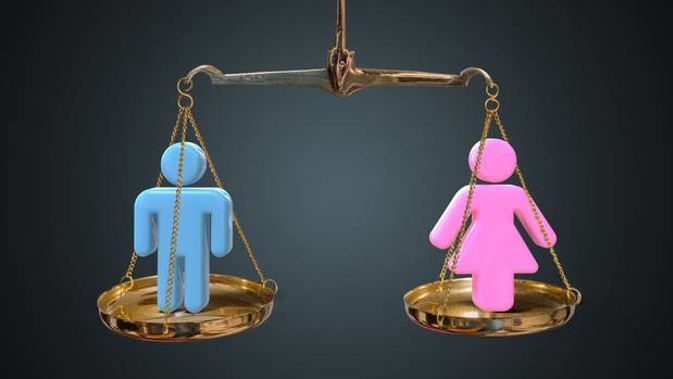
With the swearing-in of the most right-wing government in half a century, New Zealand’s capitalists should be asking questions about “equity”. For the past six years “equity” has been the officially mandated outcome of public policy. The most important question in need of an answer is deceptively simple: “Is the concept of equity compatible with capitalism?”
According to the US-based National Association of Colleges and Employers (NACE):
“The term “equity” refers to fairness and justice and is distinguished from equality. Whereas equality means providing the same to all, equity means recognising that we do not all start from the same place and must acknowledge and adjust imbalances. The process is ongoing, requiring us to identify and overcome intentional and unintentional barriers arising from bias or systemic structures.
That is not a state of affairs that could co-exist easily alongside contemporary capitalism. Indeed, it sounds like its antithesis. Capitalism can accommodate equality – especially in the guise of “equality of opportunity”. But those attempting to create an equitable society go way beyond seeking something as piffling as equality of opportunity. What the promoters of equity are striving for is an equality of outcomes.
That is not something capitalism can – or would want to – deliver. Inequality of reward is the beating heart of capitalism: it’s what makes every billionaire jump out of bed in the morning. A world in which the state was forever “levelling-up”, or “levelling-down”, would make said billionaire want to pull the bedclothes up over his head, convinced he was living the most terrible nightmare.
And yet, for the past six years the achievement of equity has been a widely sought after goal. Not, it must be said, the goal that those in the engine-room of New Zealand capitalism are seeking. Not too many of the people dedicated to the enrichment of their shareholders are all that keen on moving towards an equality of outcomes and rewards. Beyond the bastions of industry and commerce, however, in the institutions where managers with social-science degrees hold sway, “making adjustments to imbalances” has been all the rage.
Nowhere has this quest been more in evidence than in our education and health systems. It is in our schools, universities and hospitals that processes “requiring us to identify and overcome intentional and unintentional barriers arising from bias or systemic structures” – most particularly those pertaining to ethnicity – have made the greatest advances. In this regard, nothing beats the establishment of Te Aka Whai Ora, the Māori Health Authority.
Those who push for equity like to illustrate their intentions by showing us a picture of three boys watching baseball from outside the park. Each has an identical box to stand on. This is an excellent arrangement for the oldest and tallest boy, who has a fine view of the game. The second, smaller boy, is just tall enough to observe the game. The smallest boy sees nothing. Even with a box to stand on, he cannot see over the fence.
The promoters of equity swiftly replace this depressing tableau with a picture showing the boxes redistributed. The tallest boy has given his box to the smaller boy, who has placed his own box on top of the smallest boy’s box. Now all three of them can enjoy the baseball game from roughly the same elevation.
Despite its superficial simplicity – all society has to do is redistribute its boxes! – the proposed solution provokes a range of observations and alternative solutions. A socialist might object to the presence of the fence in the first instance. His preference would be to have such barriers, evidence of a property owner’s intention to ration access to sporting fixtures by price, pulled down. Little boys should not be forced to stand on boxes to enjoy the ball game! A capitalist, by contrast, might defend the right of the sportsground owner to protect his investment. If the kids want to watch the game, then let them buy a ticket like everybody else.

It’s just an illustration, of course, but it does identify one of the key weaknesses of the equity promoters’ project. All too often in these quests for equity, their eyes fall upon details that cannot be changed. Ethnicity, gender, sexuality, disability: these immutable identities provide endless opportunities for the demonstration of individual and/or systemic bias. Justice and fairness demand that the institutions responsible for such discrimination be forced to undertake remedial action.
New Zealand’s promoters of equity argue that being Māori means that you are likely to have poorer health, endure inferior treatment, and have a lower life expectancy than your Pakeha compatriots. They further argue that health outcomes are improved when like treats like. Only Māori health professionals, they say, have the depth of cultural understanding necessary to treat Māori patients successfully. The solution, promoted by the Sixth Labour Government, is for the state to establish a separate Māori entity. Māori must be given their own carefully measured and constructed box to stand on.
But is ethnicity the only variable in this equation? Many New Zealanders would argue that social class, not ethnicity, is a much more accurate predictor of one’s health status, the treatment one receives, and individual longevity. The test would be whether the health, treatment and lifespan of high-status Māori was better, worse, or the same, as working-class Māori. Ditto for poor, working-class Pakeha, when compared to the people who own the factories, warehouses and offices in which they work.
By focusing on identity instead of class, those demanding equal outcomes get to enjoy one very important advantage. It makes it much more difficult for the capitalists to grasp the enormous economic consequences of a serious state commitment to equity. Capitalists know exactly what socialists are after: they want to increase the share of wealth going to workers and decrease the share going to owners. Simple.
Much more difficult to identify as an existential threat to capitalism is the movement to even-up the life experiences of different ethnicities, genders, sexualities and abilities. This is especially true in New Zealand, where giving people a “fair go” is deeply embedded in the culture. In the end, however, this new equitable society is one of endless intervention, capricious redistribution, officious supervision and prohibitive cost.
In the equitable society, the Marxist slogan: “from each according to his ability, to each according to his need” is rejected. What each citizen gets is determined by their identity and how powerfully they assert it. New Zealand capitalists should be wary. It may prove easier, in the end, to deal with those who want a better world, than with those who want one that is more equitable. Where all outcomes are the same, difference must, eventually, become the gravest sin.
Take your Radio, Podcasts and Music with you









